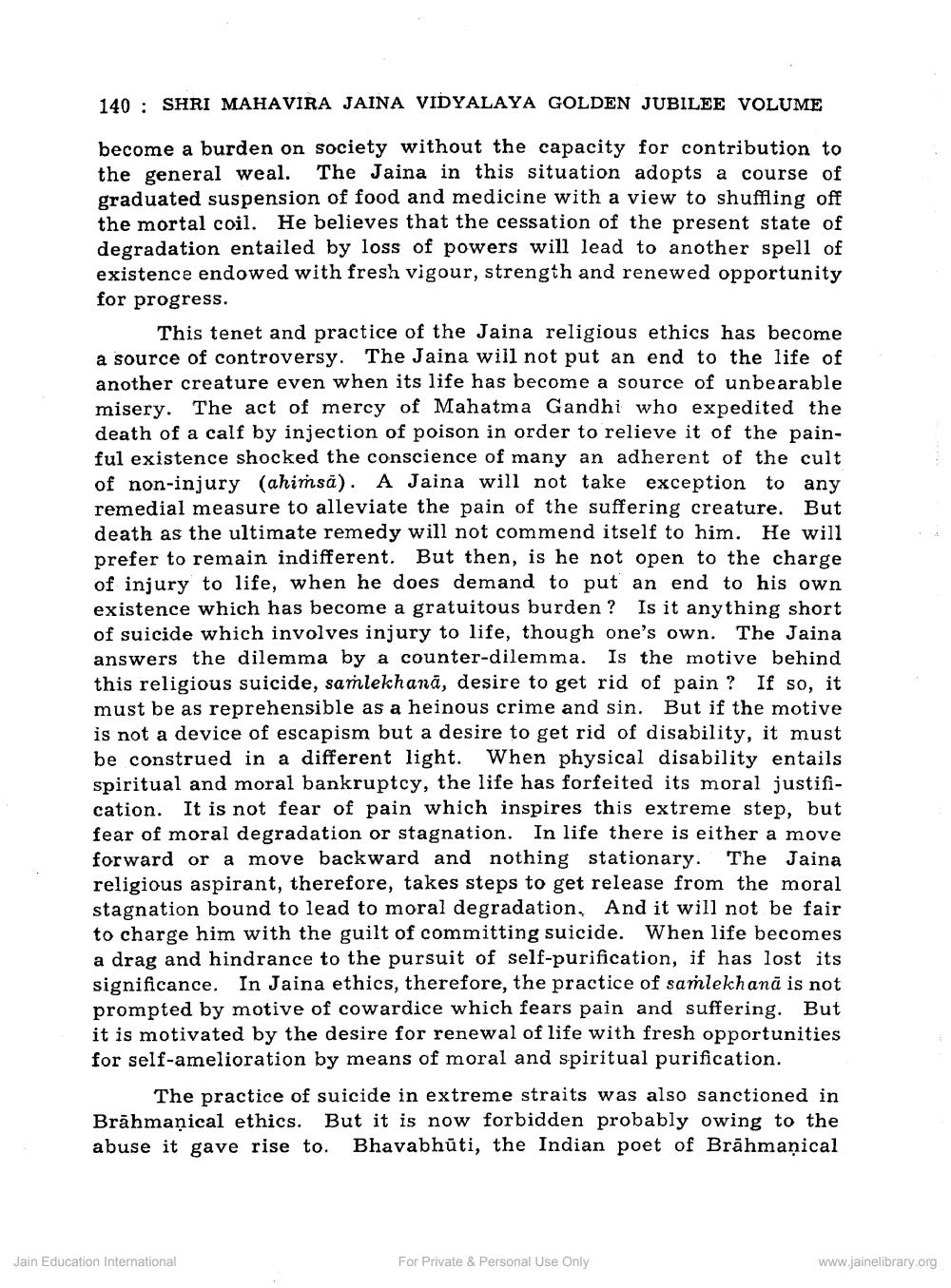Book Title: On Samlekhana or Supension of Aliment Author(s): Nathmal Tatia Publisher: Z_Mahavir_Jain_Vidyalay_Suvarna_Mahotsav_Granth_Part_1_012002.pdf and Mahavir_Jain_Vidyalay_Suvarna_ View full book textPage 2
________________ 140SHRI MAHAVIRA JAINA VIDYALAYA GOLDEN JUBILEE VOLUME become a burden on society without the capacity for contribution to the general weal. The Jaina in this situation adopts a course of graduated suspension of food and medicine with a view to shuffling off the mortal coil. He believes that the cessation of the present state of degradation entailed by loss of powers will lead to another spell of existence endowed with fresh vigour, strength and renewed opportunity for progress. This tenet and practice of the Jaina religious ethics has become a source of controversy. The Jaina will not put an end to the life of another creature even when its life has become a source of unbearable misery. The act of mercy of Mahatma Gandhi who expedited the death of a calf by injection of poison in order to relieve it of the painful existence shocked the conscience of many an adherent of the cult of non-injury (ahimsā). A Jaina will not take exception to any remedial measure to alleviate the pain of the suffering creature. But death as the ultimate remedy will not commend itself to him. He will prefer to remain indifferent. But then, is he not open to the charge of injury to life, when he does demand to put an end to his own existence which has become a gratuitous burden? Is it anything short of suicide which involves injury to life, though one's own. The Jaina answers the dilemma by a counter-dilemma. Is the motive behind this religious suicide, samlekhana, desire to get rid of pain ? If so, it must be as reprehensible as a heinous crime and sin. But if the motive is not a device of escapism but a desire to get rid of disability, it must be construed in a different light. When physical disability entails spiritual and moral bankruptcy, the life has forfeited its moral justification. It is not fear of pain which inspires this extreme step, but fear of moral degradation or stagnation. In life there is either a move forward or a move backward and nothing stationary. The Jaina religious aspirant, therefore, takes steps to get release from the moral stagnation bound to lead to moral degradation. And it will not be fair to charge him with the guilt of committing suicide. When life becomes a drag and hindrance to the pursuit of self-purification, if has lost its significance. In Jaina ethics, therefore, the practice of samlekhanā is not prompted by motive of cowardice which fears pain and suffering. But it is motivated by the desire for renewal of life with fresh opportunities for self-amelioration by means of moral and spiritual purification. The practice of suicide in extreme straits was also sanctioned in Brāhmaṇical ethics. But it is now forbidden probably owing to the abuse it gave rise to. Bhavabhūti, the Indian poet of Brāhmanical Jain Education International For Private & Personal Use Only www.jainelibrary.orgPage Navigation
1 2 3 4 5
